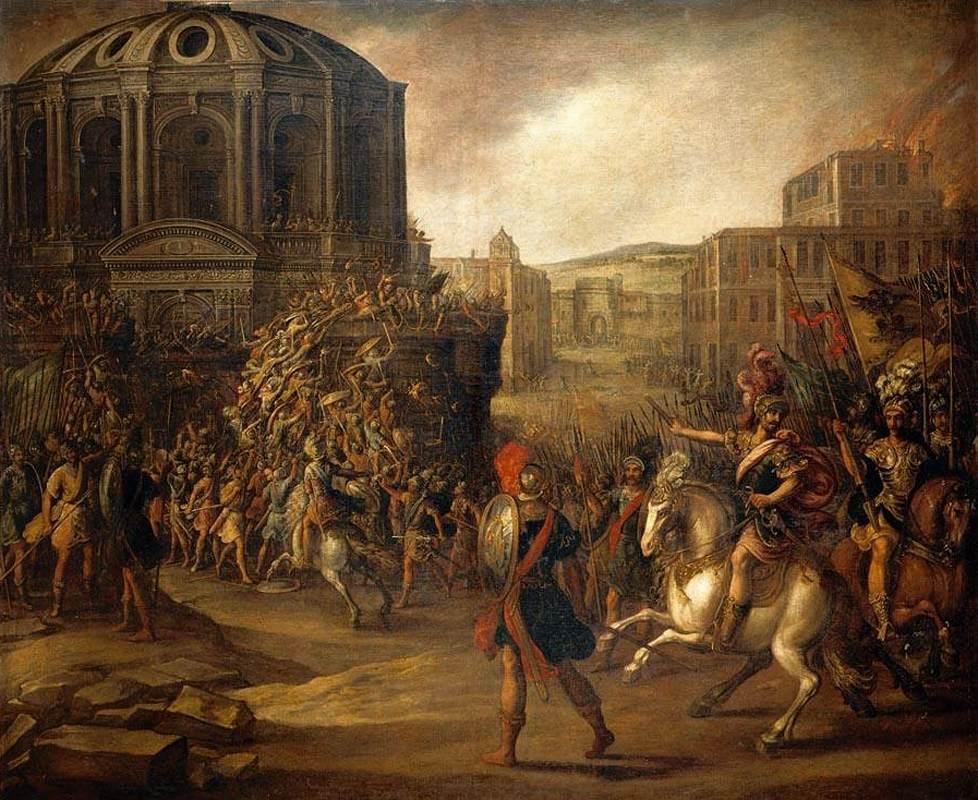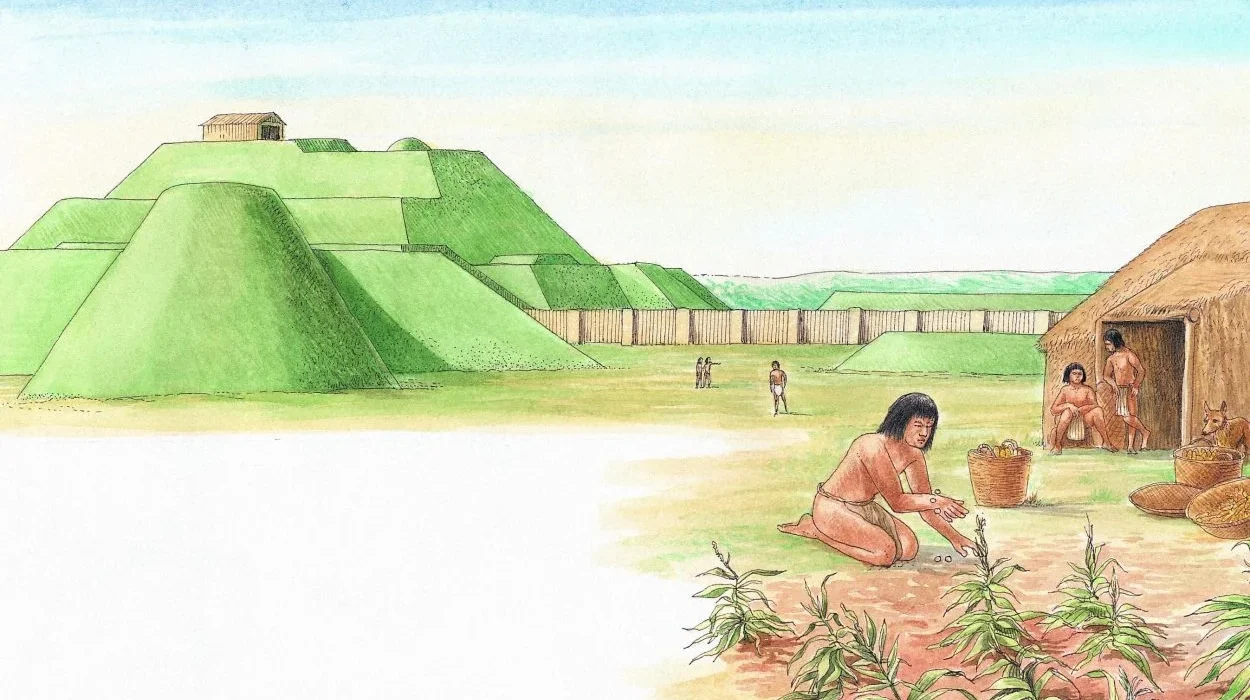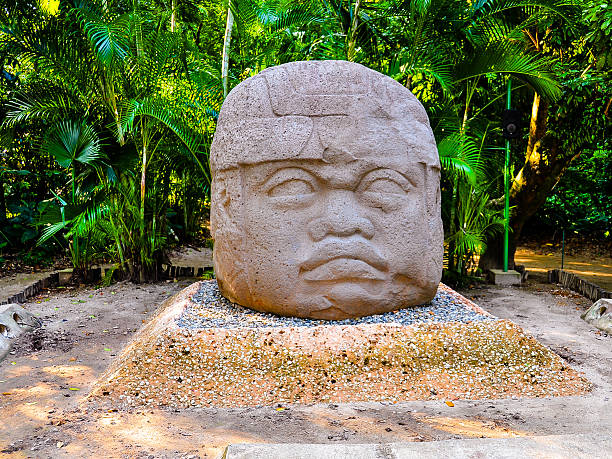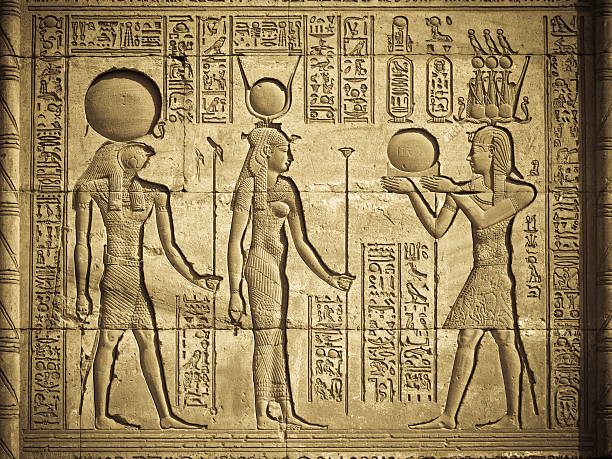The story of Ancient Greece is one of brilliance and tragedy, of cultural heights unmatched in human history and a decline that reshaped the ancient world. For centuries, Greece stood as a beacon of philosophy, democracy, art, science, and warfare. It gave the world Socrates, Plato, Aristotle, Pericles, Sophocles, and countless others whose ideas and works still echo through modern thought. Yet, despite its cultural supremacy, Greece fell—not suddenly, like a city razed overnight, but gradually, like a flame flickering until it could no longer resist the surrounding darkness.
To speak of the “fall” of Ancient Greece is to grapple with complexity. Greece was not a single unified empire but a mosaic of city-states (poleis) like Athens, Sparta, Corinth, and Thebes, each with its own identity, government, and ambitions. Their downfall did not come from a single event but from a series of internal struggles, external invasions, shifting alliances, and relentless wars that slowly eroded their strength. By the time the Romans entered the scene, Greece’s glory was still admired, but its political independence was already broken.
The decline of Greece is a story not only of politics and battles but of human ambition, rivalry, and the consequences of choices made in moments of pride and desperation. It is a reminder that even the most enlightened civilizations are not immune to collapse.
The Golden Age Before the Fall
Before Greece fell, it rose to extraordinary heights. The 5th century BCE, particularly the period after the Persian Wars (499–449 BCE), is often called the Golden Age of Greece. Athens emerged as the cultural and intellectual center of the Mediterranean, flourishing under the leadership of Pericles. Democracy took root, the Parthenon was built, and drama, philosophy, and history reached new pinnacles.
But beneath the shining surface, seeds of future decline were already being planted. Wealth from the Delian League—an alliance of city-states formed to defend against Persia—was funneled into Athens, creating resentment among other members. Rivalries deepened, especially with Sparta, the militaristic powerhouse of the Peloponnesus. The unity that had once saved Greece from Persian conquest gave way to distrust, competition, and, eventually, devastating civil war.
The Peloponnesian War: Greece Against Itself
The Peloponnesian War (431–404 BCE) was the first great fracture in the Greek world. Athens, with its naval supremacy and democratic ideals, clashed with Sparta, land-dominant and oligarchic. What began as a struggle for influence turned into a drawn-out, brutal conflict that drained resources, destroyed lives, and weakened both sides beyond repair.
Thucydides, the historian who chronicled the war, captured its devastating nature: famine, plague, massacres, betrayals, and the erosion of moral codes. The famous plague of Athens (430 BCE) killed perhaps a quarter of its population, including Pericles, the statesman who might have steered Athens more wisely. Athens suffered catastrophic defeats, most notably the failed Sicilian Expedition (415–413 BCE), where thousands of soldiers and hundreds of ships were lost.
When Sparta finally triumphed with Persian support, Greece was left fractured and vulnerable. The war had destroyed the illusion of invincibility, and the bonds between city-states were shattered. Though Greek culture survived, its political stability had been permanently undermined.
The Rise of Macedon and the End of City-State Dominance
The weakness of the city-states paved the way for a new power: Macedon. Long considered a semi-barbaric kingdom on the fringes of Greek culture, Macedon rose under the leadership of Philip II in the 4th century BCE. Through military reforms, diplomacy, and ruthless tactics, Philip subdued much of Greece.
The decisive moment came at the Battle of Chaeronea (338 BCE), where the Macedonian army, aided by Philip’s young son Alexander (later “the Great”), crushed the combined forces of Athens and Thebes. The era of independent Greek city-states had ended; they would henceforth live under Macedonian dominance.
Though Greek culture continued to thrive and even spread under Alexander the Great’s vast empire, the fall of political autonomy marked a turning point. The dream of self-governing poleis was gone, replaced by monarchies and empires. Greece became a contributor to larger imperial structures rather than the center of power itself.
Alexander the Great: Expansion and Fragmentation
Alexander’s conquests (336–323 BCE) extended Greek influence from Egypt to India. Hellenistic culture—an extraordinary blend of Greek, Egyptian, Persian, and other traditions—spread across the ancient world. Cities like Alexandria in Egypt became centers of learning and innovation.
Yet Alexander’s empire was not built to last. His sudden death at the age of 32 unleashed chaos. His generals, the Diadochi, divided the empire into rival kingdoms—the Ptolemaic dynasty in Egypt, the Seleucid Empire in Asia, and the Antigonid dynasty in Macedonia. While these Hellenistic states preserved and spread Greek culture, Greece itself became increasingly marginalized, torn apart by local struggles and caught between greater powers.
The fragmentation of Alexander’s empire revealed a central weakness: Greek brilliance in culture and philosophy had not translated into political unity. The city-states had never been able to overcome their rivalries, and even in the wake of empire, they failed to forge lasting cohesion.
Internal Struggles and Economic Decline
By the 3rd and 2nd centuries BCE, Greece was exhausted. Continuous wars had drained its manpower and resources. Many city-states faced declining populations due to warfare, disease, and emigration. The agricultural lands, long overexploited, suffered erosion and depletion, reducing food supplies. Economic inequality grew, with wealthy elites consolidating land and power while poorer citizens lost independence.
Social unrest simmered. Revolts broke out, slaves resisted their conditions, and political instability made stable governance nearly impossible. Once-proud Athens, though still a center of philosophy and education, had become politically irrelevant. Sparta, too, declined, unable to maintain its rigid military system.
The decline was not merely material but also psychological. The spirit of unity, independence, and civic pride that had once animated Greek society gave way to disillusionment. Many Greeks turned inward, embracing philosophies like Stoicism and Epicureanism that emphasized personal peace over political engagement.
The Roman Conquest of Greece
While Greece weakened, Rome was rising. Initially, the Romans admired Greek culture, adopting its gods, art, and philosophy. But admiration did not prevent conquest.
The first Roman intervention in Greek affairs came in the early 2nd century BCE, when Rome presented itself as a liberator of Greece from Macedonian rule. Yet liberation soon turned into domination. After a series of wars—the Macedonian Wars and the defeat of the Achaean League—Rome tightened its grip. The sack of Corinth in 146 BCE was both symbolic and brutal: the city was destroyed, its population enslaved, and Greece was formally brought under Roman control.
By this time, Greece was no longer the vibrant, independent power it had once been. Rome absorbed Greece into its expanding empire, allowing Greek culture to survive but stripping away political sovereignty. The Romans preserved Greek philosophy, literature, and science, but Greece as a geopolitical force had fallen.
The Cultural Triumph Amid Political Decline
Ironically, Greece’s political fall coincided with its cultural immortality. The Romans might have conquered Greece militarily, but in many ways, Greece conquered Rome intellectually. Roman education was steeped in Greek philosophy and literature. Greek art, architecture, and theater inspired Roman adaptations. Cicero studied Greek oratory, Virgil drew from Homer, and Roman temples echoed Greek designs.
In this sense, Greece never truly disappeared. Its decline as an independent power did not erase its legacy but ensured its spread. Through Rome, Greek culture was transmitted to medieval Europe, the Renaissance, and the modern world. The fall of Greece politically was, paradoxically, the beginning of Greece’s eternal presence in human civilization.
Causes of the Fall
The fall of Ancient Greece was not caused by a single factor but by a convergence of many:
- Internal divisions: The rivalries between Athens, Sparta, Thebes, and others led to destructive wars.
- Economic and demographic decline: Overexploited land, population losses, and inequality eroded resilience.
- Macedonian and later Roman conquest: Stronger external powers exploited Greek weakness.
- Failure of unity: Greece’s greatest flaw was its inability to overcome the city-state model and build a lasting political system capable of resisting outside domination.
These causes combined to weaken Greece from within and expose it to conquest from without.
Consequences of the Fall
The consequences of Greece’s fall were profound and lasting:
- Loss of political independence: The dream of the self-governing polis ended, replaced by empires and monarchies.
- Spread of Hellenistic culture: Though Greece fell, its culture spread farther than ever before, shaping art, science, and philosophy for centuries.
- Roman adoption of Greek ideas: Greece’s intellectual legacy was preserved and transmitted through Rome to the wider world.
- Lessons for future civilizations: The fall of Greece became a cautionary tale of the dangers of disunity, rivalry, and overextension.
The Enduring Legacy
Though Ancient Greece fell politically, it never truly died. Its ideas live on in democracy, philosophy, literature, science, and art. Every time we debate in democratic assemblies, study ethics, admire classical architecture, or analyze the human condition through tragedy and comedy, we walk in the footsteps of the Greeks.
The fall of Greece was not the end but a transformation. From its ruins, Rome built an empire that carried Greek ideas forward. From Rome, the Renaissance rediscovered those ideas. And today, the modern world continues to be shaped by the intellectual and cultural achievements of a civilization that fell but was never forgotten.
Conclusion: A Civilization’s Fragile Brilliance
The fall of Ancient Greece reminds us of both the fragility and resilience of civilizations. Political structures can collapse, economies can falter, and armies can be defeated. Yet ideas—when they touch the core of human imagination—can survive and transcend time.
Greece’s downfall was tragic, born of rivalry, ambition, and external conquest. Yet its enduring legacy is one of triumph, for its cultural and intellectual contributions remain alive more than two millennia later. The Greeks themselves may have lost their independence, but their spirit continues to shape humanity’s search for truth, beauty, and meaning.
In the twilight of Ancient Greece, we see both a warning and a hope: civilizations may fall, but what they leave behind can light the way for generations to come.






